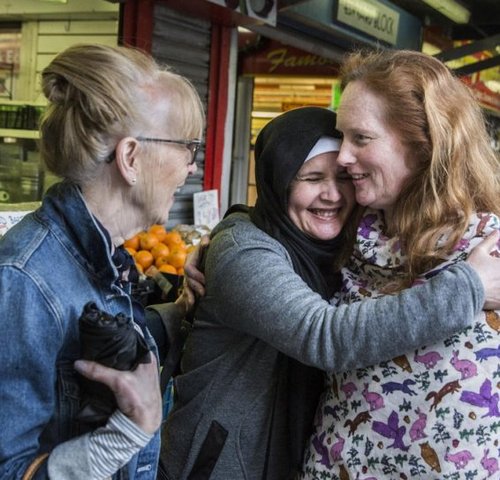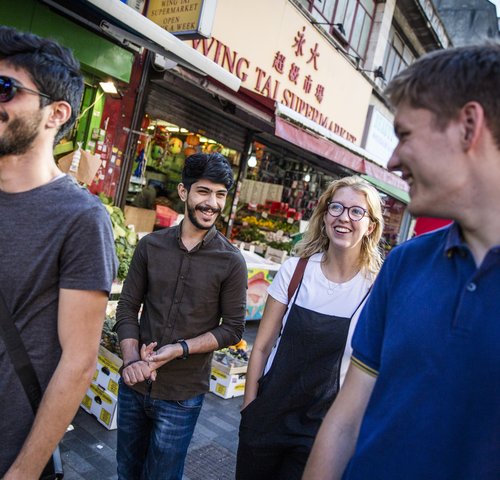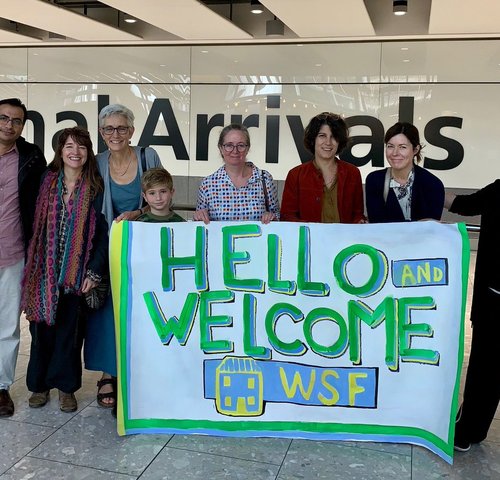The Only Syrian Family in the Village
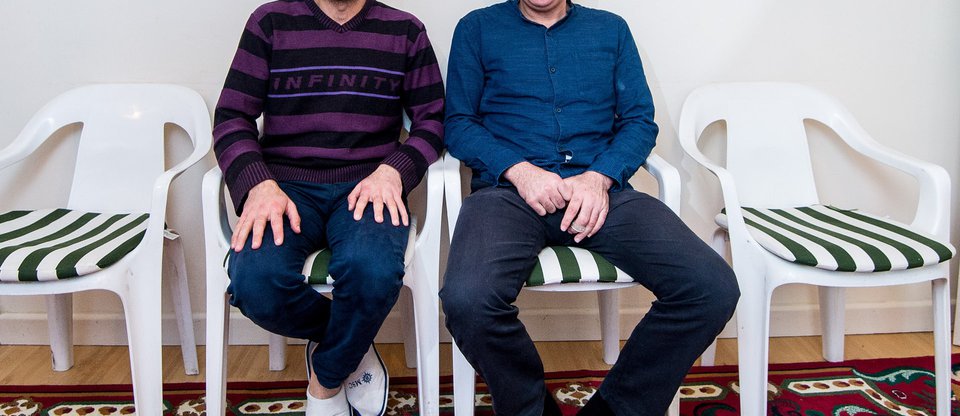
But thanks to the kindness of a determined band of townsfolk, a seven-strong family of Syrian refugees who fled their homeland with nothing but the clothes they were wearing, have found respite in the depths of rural south-west Wales .
For the first time in six years, the son of the family is in school. The young men have been out playing football with locals. There have been trips to the beach and games of rounders on the sand.
In fact, after just four months here, the family is showing signs of going native. The mother, Safaa Batak, has begun to attend a knitting group, which she loves. The father, Ahmad Batak, has given up smoking.
They even talk about the weather.
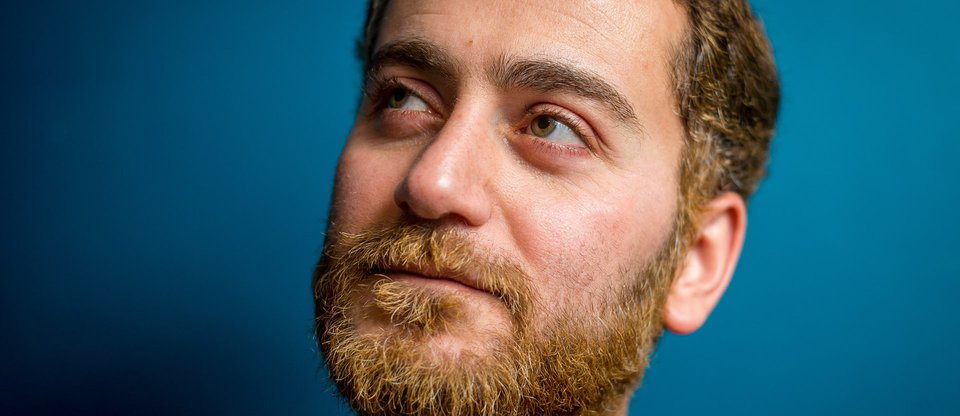
“I like this type of weather,” said Ahmad’s brother, Huseen, as the rain poured down. “I like the rain, I like the cold.”
The family were among the first to arrive in the UK under a community sponsorship scheme designed to help grassroots groups offer a fresh start to refugees in the greatest need, including survivors of violence and torture, and people requiring urgent medical treatment.
There are no mosques in Narberth (population 2,400) and few Muslim people. Before their arrival in the summer, there were worries that the family could feel isolated and might not like the food, the culture, the weather.
But giving their first interviews, members of the family said they already felt at home. “It’s a nice life here, the people are friendly,” Ahmad said, speaking through an interpreter. “People are supporting us. I don’t speak English but I can see in people’s eyes, in their expressions, that they like us. We feel very safe here. The neighbours are good. We respect them and I think they respect us.”
After fleeing Damascus, the family were stuck in limbo in Cairo for years before the chance came to move to the UK under the community sponsorship scheme. When they arrived in July , all their worldly possessions fitted on to four airport trolleys.
“We felt comfortable as soon as we arrived,” said Ahmad. “The weather was nice, the environment was clean. I like the clean air, I like the quietness.”
Before a family is allocated, community sponsorship groups have to prepare a detailed plan explaining how they will provide all that the family may need, from housing to access to medical care, English language tuition and the support for them to move towards independence.
In Narberth this has meant trips to doctors, hospitals, dentists (none of the family had had dental care for six years and desperately needed it), appointments to arrange benefits and jobcentre interviews.
Ahmad and Safaa’s 14-year-old son has begun at a local school, where he is doing well and has learned some English and a little Welsh. The hope is that their 19-year-old daughter will be able to start college.
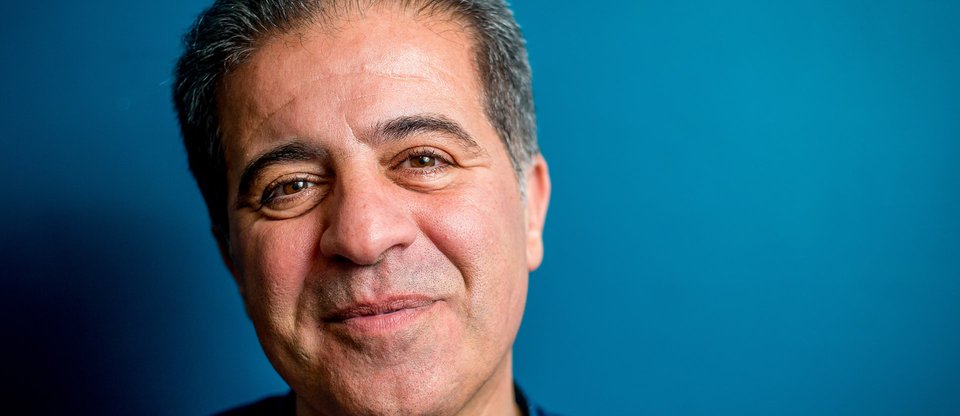
Ahmad has begun keeping chickens (from a rescue centre) and doves in the garden. They remind him of the birds he used to look after in coops on top of a sweet factory in Damascus. “Since I was a child I liked to discover and look at nature and watch birds and chickens,” he said. Now he dreams of starting his own business.
“I’m working to do that – I don’t want to stay at home. I’ve been at the jobcentre today talking about setting up a business. I hope I’ll be able to get a loan. At my age I have a lot of experience. I don’t want to waste my experience; I want to give something back to the people here, to the community. I want to make sure my children have a future and hopefully that future is in the UK.”
Ahmad’s younger brother, Huseen, wonders if they could set up a cafe together. “I’d like to start a business with my brother. In Narberth if possible. Everyone likes to have a permanent job. I want to work, I don’t want to sit at home.” He has done unpaid work in a cafe and restaurant in town to gain experience and help him learn English.
“In Syria we were happy and comfortable, I had a good job [he embroidered logos] and the country was good. We feel sad for what happened. But I feel happy and excited to be here. The life is nice and beautiful, the people are friendly and good. I thank the UK government for this chance.”
The government launched community sponsorship in July 2016 , and 53 Syrians have so far arrived under it. It sits alongside the Syrian vulnerable persons resettlement scheme, under which the UK has welcomed 8,535 Syrian refugees so far, with a pledge to resettle 20,000 by 2020.
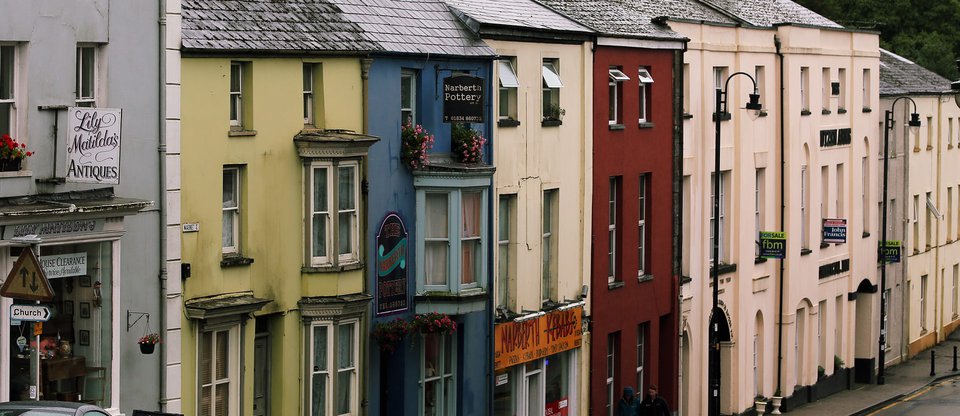
The local organising group Croeso Arberth raised money for the family through sponsored walks, garage sales and music events. Cash and goods have been donated. Throughout, it has been supported by Citizens Cymru Wales , a charity that helps communities act together for power, social justice and the common good.
There was a tiny bit of resistance in the town when locals were told about the resettlement scheme, but even that has melted away and last month the whole of Narberth was presented with a human rights award by Liberty. The charity’s director, Martha Spurrier, said Narberth had shown that kindness and humanity could overcome fear, suspicion and hate.
Jonathan Cox, lead organiser of Citizens Cymru Wales, said that since the Guardian wrote about the Narberth scheme in July a further 10 groups had come forward applying to sponsor a Syrian refugee family.
He added: “Narberth has blazed a trail which many others are now following - and when faced with the size of the challenge, they have encouraged themselves to continue by saying ‘Well, if Narberth managed it then we must be able to do it too.’”
The future is not entirely clear for the family. They only have the right to stay for five years, after which they can apply for indefinite leave to remain.
Safaa explained that one of her motivations for coming was the desire to find schooling for her children. “I want to educate my children. They missed out on education for six years.”
Her English is developing. She could follow the last movie she watched at the film club and can chat a little with her fellow knitting group members.
There has also been some wonderful family news. Safaa’s 23-year-old daughter and her husband (who has ambitions of becoming a fitness instructor) are expecting their first child. Safaa is looking forward to being a grandmother.
“I feel very happy,” she said. “The most important thing is that I could save my family and bring them here. We feel here like we felt in Syria before the war – the same good feeling.”
Photo Credits: Athena Pictures; Dimitris Legakis
This article was originally published on The Guardian , 25th November 2017.
